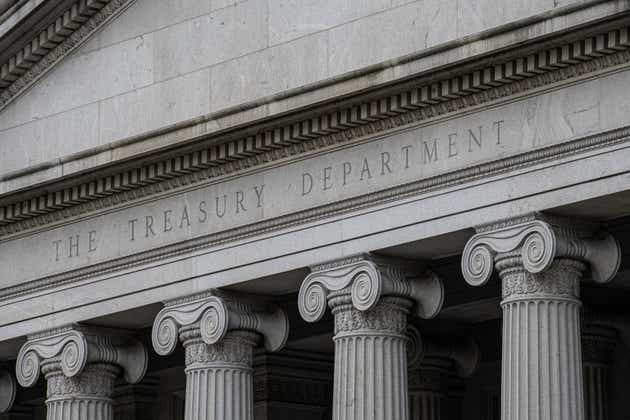This week's FOMC announcement on interest rates would typically be the big-name event for investors, but not this time around. While a Fed hike in December is up for debate, no one expects the central bank to raise rates this week, especially given recent economic data, tightening financial conditions, the cautious tone of policymakers and global geopolitical uncertainty. Instead of the FOMC decision, another headline on Wednesday will draw the attention of the market as the U.S. struggles with a big debt problem and climbing yields that continue to make servicing that debt more expensive.
Refunding announcement: To satisfy the federal government's borrowing needs, the U.S. Treasury Department sells many types of bonds that span popular 2-year (US2Y), 10-year (US10Y) and 30-year (US30Y) securities, floating-rate notes, inflation-linked bonds and other types of debt with differing maturities. Every quarter, the Treasury details its menu of debt that it plans on issuing, in what is known as its "quarterly refunding" statement. Investors have recently taken a renewed interest in the announcement, given the volatility in the Treasury market and what it means for other sectors of investment and the broader economy.
Heavy borrowing by the Treasury has been a big factor behind the recent run-up in long-term yields, which last week hit their highest levels since the financial crisis in 2007. Other types of spending and tax-revenue shortfalls have also added to the national debt, which doubled in the fiscal year through September and now stands at nearly $34T. The Fed's most aggressive tightening of monetary policy in decades has prompted further worries over the amount of borrowing, with Fitch stripping the U.S. of its AAA sovereign rating before the last Treasury refunding announcement in August, citing factors like an expected fiscal deterioration and growing debt burden.
Issuance composition: Supply and demand will be in focus during this week's refunding announcement given the recent volatility in the Treasury market. Will longer-term debt sales be ramped up to fund a widening federal deficit, or will there be a greater reliance on short-term bills due to the recent surge in yields? On the demand side, Treasuries remain one of the safest plays on the planet, but the auctions have become increasingly reliant on hedge, pension and mutual funds to scoop up large quantities of bonds, as foreign governments and U.S. banks reduce their purchases (including the Federal Reserve). Take the WSB survey.









No comments:
Post a Comment